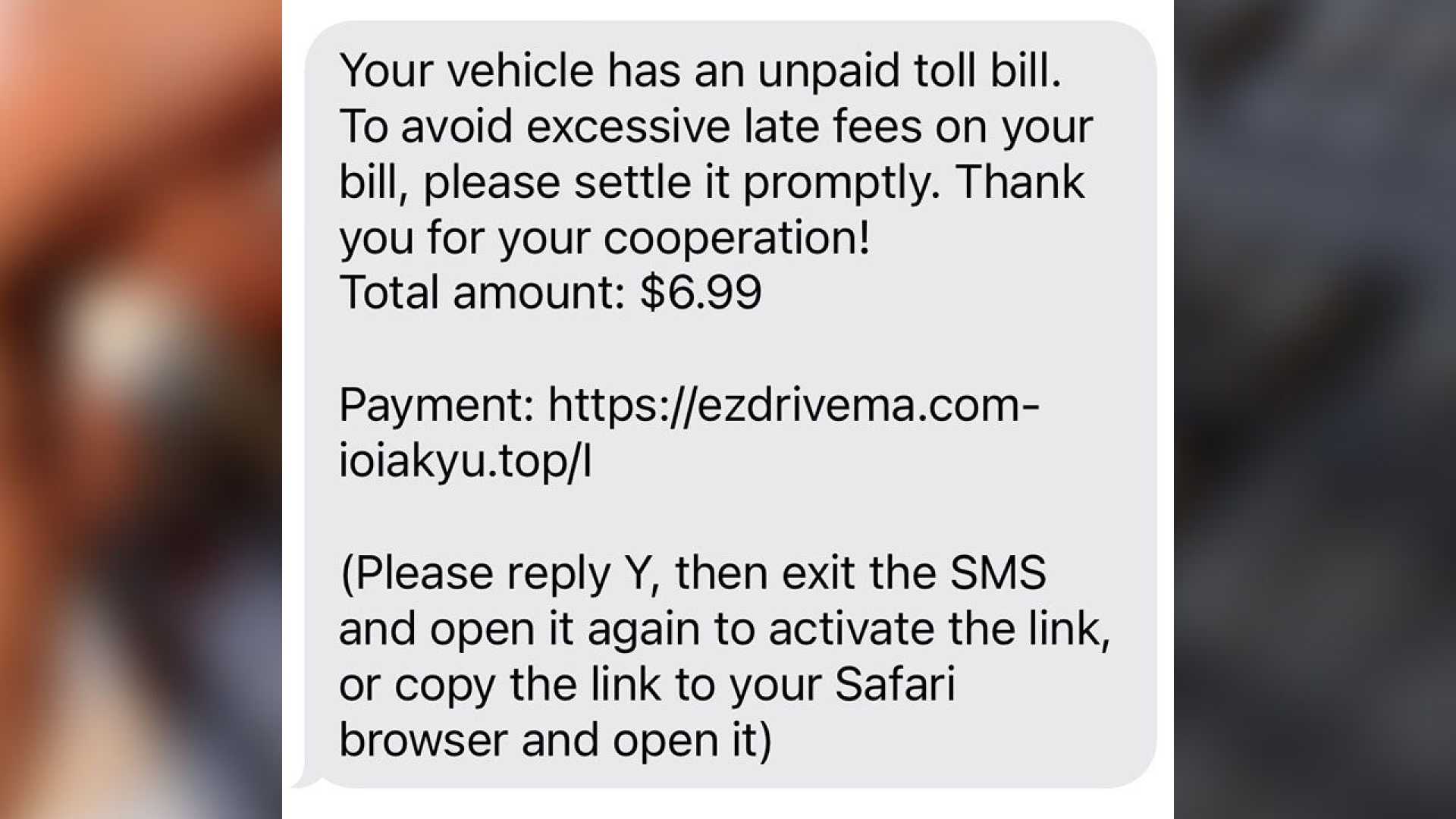News
Nationwide Smishing Scam Targets Drivers with Fake Toll Notifications

HOLYOKE, Mass. — Federal and state officials are warning Americans about a growing SMS scam that falsely claims individuals owe money for unpaid tolls. Recipients of these messages have been asked to make immediate payments, often featuring an amount purportedly owed, along with a link that directs them to a fraudulent website.
“Whether you’ve driven through a toll recently or not, you might’ve gotten a text saying you owe money for unpaid tolls. It’s probably a scam,” said the Federal Trade Commission (FTC) in a consumer alert issued on Tuesday. Scammers are impersonating toll agencies across the nation in a bid to extract personal and financial information.
The FTC revealed that these deceptive messages not only demand payment but can also lead to identity theft if the provided links are clicked. “If you click the link, they could get your personal info — and even steal your identity,” the FTC warned.
This alert comes shortly after New York Governor Kathy Hochul raised similar concerns, acknowledging reports from residents about receiving unsolicited SMS messages regarding toll payments. The text messages often originate from international numbers, prompting recipients to reply with a “Y” in order to receive a link to what appears to be an unofficial site.
“E-ZPass and Tolls by Mail never send texts or emails asking for personal information,” Governor Hochul emphasized. Several states, in addition to New York, have issued similar warnings, confirming that the scam has reached a national level.
The scam, known as “smishing,” combines SMS with phishing tactics. The FBI‘s Internet Crime Complaint Center (IC3) reported more than 60,000 complaints in 2024 alone, documenting a rise in fraudulent texts that claim individuals owe money for road tolls. According to the FBI, the messages often contain similar language and duplicate amounts among various complaints.
In Georgia, the State Road and Tollway Authority recently highlighted the increase in SMS attacks targeting tollway users. “Fraud activity continues throughout the nation,” warned the state’s Department of Transportation, urging residents to disregard and delete suspicious messages.
John Goodwin, assistant director of communications with the Metropolitan Transportation Commission in San Francisco, noted that the deceptive tactics are not limited to the U.S. “The domain registrations for these websites typically trace back to offshore locations,” he said, citing registrations in countries such as Hong Kong and Russia.
Moreover, the International Bridge, Tunnel & Turnpike Association (IBTTA) has reported that state authorities are actively working to shut down these fraudulent sites as they are discovered. However, they noted the challenges presented by the continually evolving tactics of scammers.
Victims who have clicked on these deceptive links may find themselves compromised, with the potential for identity theft and financial losses. The FBI recommends disputing any unfamiliar charges and securing personal and financial information if a link was clicked.
Authorities advise individuals who receive such messages to report them to the FBI and share details about the originating phone number and website included in the message. This information helps to track trends and similarities in the tactics used by scammers.












